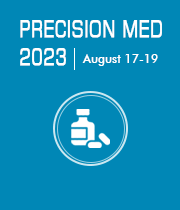Personalized Therapies
Until today, most diseases were treated with standardised therapy options that did not allow for individual variance. Customization of healthcare is now possible because of technological advancements in the field. Today, we'll look at how healthcare can be customised for cancer management. To manage a health issue, personalised medicine involves the use of specific medicines or drugs based on a patient's molecular analysis. The molecular foundation of any disease in an individual is defined by genomics. Precision medicine is a branch of medicine that focuses on disease treatment and prevention depending on a person's lifestyle, genetic composition, and environment. This treatment is founded on the notion that "every patient is unique." Precision medicine adds specifics to each, such as targeted therapy and which pharmaceuticals will work best with other drugs, and so on. Drugs in the trial phase for precision medicine are still being studied. Patients having a genetic mutation can participate in these clinical studies, and a medication treatment can be tested on them.
- Drug Intervention
- Therapeutic Intervention
- Biologic Intervention
- Policies for Personalized Therapies
- Rare Disease Treatment
- Cancer Treatment
- Digital Medicine

Bernd Blobel
University of Regensburg, Germany
Roy Gary Beran
University of New South Wales, Australia
Matthias Schwab
University of Tubingen, Germany
Thomas Webster
Interstellar Therapeutics, United States
Boris Tankhilevich
Magtera, Inc., United States
Isabella Friis Jorgensen
University of Copenhagen, Denmark


Title : The use of anti seizure medication therapeutic blood level determination to personalise the treatment of epileptic seizures especially in patients attending the accident and emergency department
Roy Gary Beran, University of New South Wales, Australia
Title : Personalized and precision medicine (PPM) can be established as a unique healthcare model through biodesign-driven and inspired biotech, translational applications. This approach aims to ensure human healthcare, wellness, and biosafety.
Sergey Suchkov, Institute for Biotech & Global Health of RosBioTech and A.I. Evdokimov MGMSU, Russian Federation
Title : Monitoring folds localization in ultra-thin transition metal dichalcogenides using optical harmonic generation
Ahmed Raza Khan, Australian National University, Australia
Title : A systematic review of regulatory approaches for Direct- To- Consumers (DTC) genetic testing
Kavitha Palaniappan, Duke-NUS Medical School, Singapore
Title : Regulatory framework of in vitro diagnostic and artificial intelligence for precision medicine
Pei Ting Sarah Chou, Regulatory Affairs Professionals Society, Taiwan
Title : Unraveling cancer stem cell signatures in circulating tumor cells of metastatic colorectal cancer: Investigating ALDH1A1 and the repurposing potential of disulfiram via scRNA-seq
Nurul Syakima Ab Mutalib, Universiti Kebangsaan Malaysia, Malaysia